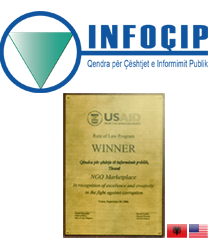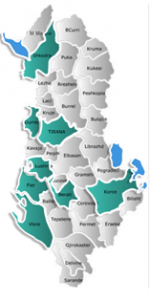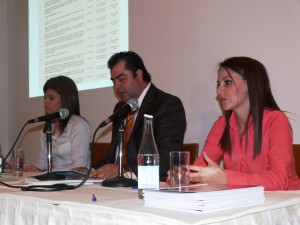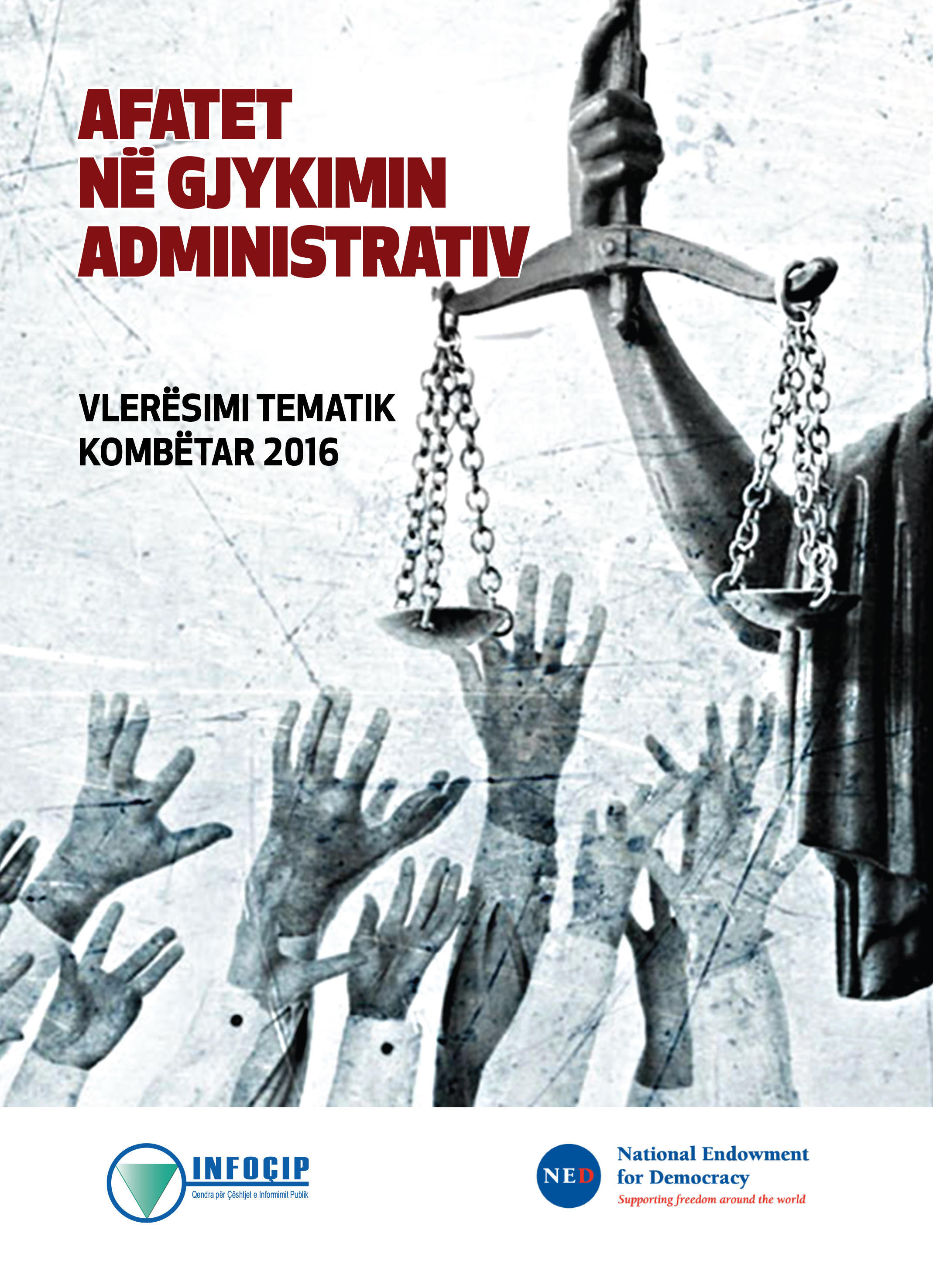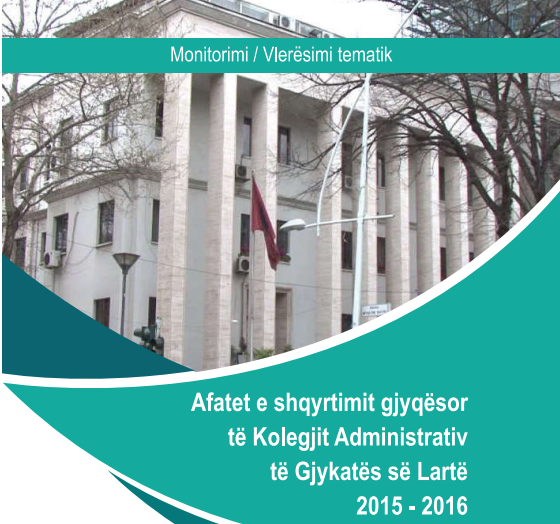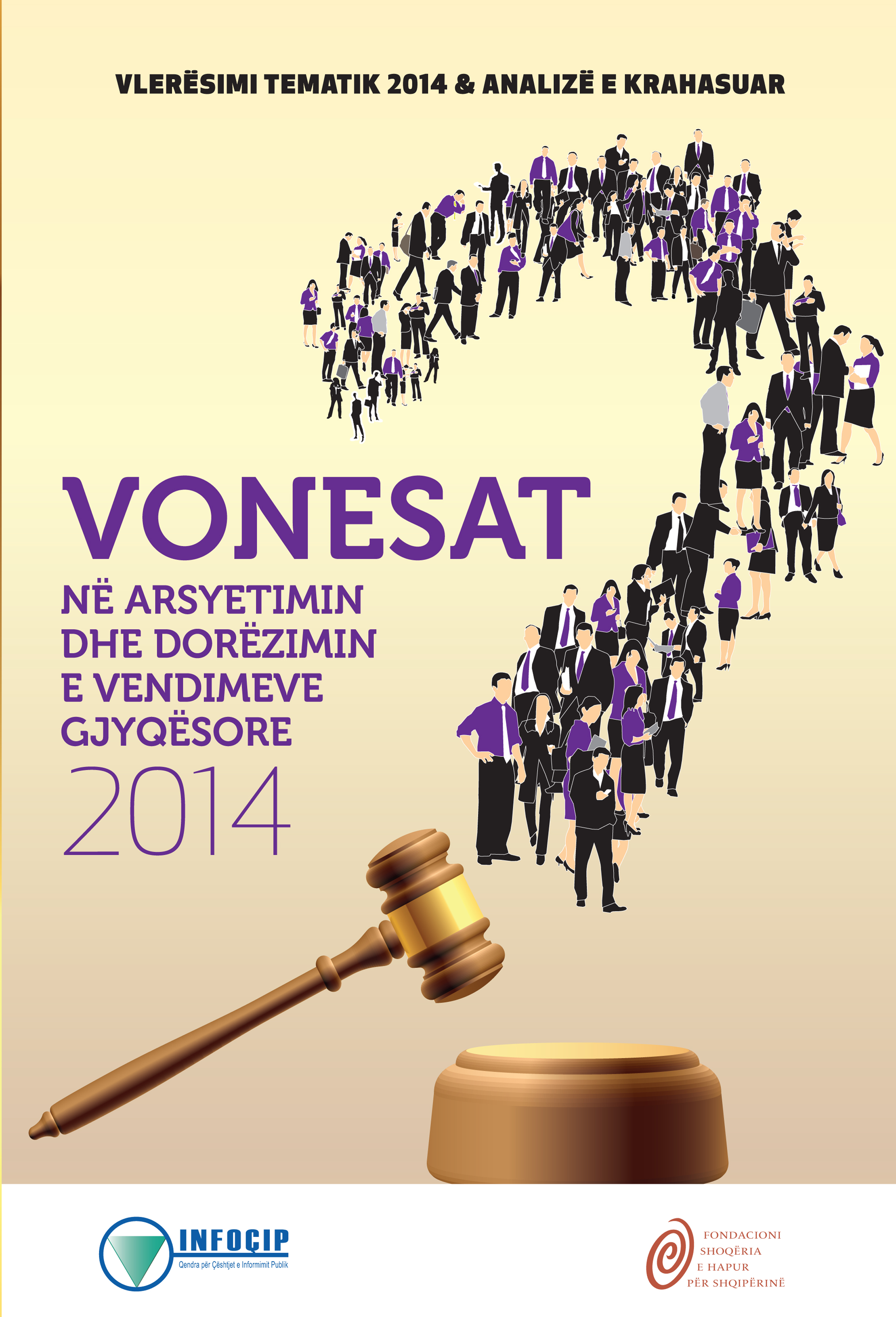CPII announces annual monitoring Report “Transparency of State Publications in the Rep. of Albania, 2011 ″
On September 22, 2012, CPII announced the findings of the Monitoring Report “Transparency of State Publications in the Republic of Albania, 2011″. Subject to monitoring in the frame of this Report is the publication in the Official Journal of acts issued by the Albanian central constitutional institutions. The findings’ legitimacy is strictly based on the respective provisions of organic laws governing the functioning of these institutions. In the case in question, it is related to the announcement and publication of acts they issue. The 2011 Report was supported by Partnership for Transparency Fund, headquartered in Washington D.C.
The Report observes a normal situation with regard to the publication in Official Journal of laws enacted by the Albanian Parliament (a total of 130). Further, the Report observes that all ratifying laws passed in 2011 are published in the Official Journal along with the text translated in Albanian of the related ratified agreement.
In the Executive Branch, a significant improvement is observed in 2011 with regard to the publication of governmental decisions (DCM-s), compared to the previous years, although some of these important acts still remained unknown to the public (pg.16-21 of the Report). Furthermore, all Normative Acts with the Power of Law issued by the Council of Ministers were published in the Official Journal during 2011.As in previous year, an ongoing concern remained in also in 2011 the publication in the Official Journal of ministerial instructions, an explicit legal requirement to ensure their entry into force (article 19, law 9000,”On organization of Council of Ministers”). A worsening condition is introduced for the publication of Instructions issued by the Minister of Agriculture (75 % unpublished) followed by those issued by the Minister of Education (40 % unpublished).
With regard to the Judiciary, the 2011 Report observed a normal situation concerning the publication of the Constitutional Court decisions (53 in total) but a worsening situation regarding the announcement within specified legal time limits and then the publication in the Official Journal of the Unifying Decisions of the Supreme Court. About half of them (6 out of 13) were not even published in the Official Journal during 2011, mainly due to delays in their announcement (average calculated delay is about 5 months), thus exceeding the one reported in 2010. Irregularities identified in the Report automatically indicate violations of legal provisions in force regarding the announcement and/or publication of acts, subject to monitoring.
As regards the Supreme Court, the responsibility lies with the judges who cause delays in the announcement of unifying decisions due to their non-reasoning within the legal time limits established by law (article 19 of Law 8588 dated 15/03/2000 “On organization and functioning of the Supreme Court of the Republic of Albania”). Reportedly, the reasoning of minority opinion is mainly delayed, thus “pledging” the announcement and then publication in the Official Journal of the Unifying Decisions.
 Whereas, in the Executive Branch, non-publication of acts holds liable the senior officials of public administration (mostly the secretaries general). Strangely, the instructions signed by ministers are not sent for publication by their subordinates at the administration. It is equally absurd that the institution, which is the main concerned party, does not take effective measures for the publication of acts it issues, to be recognized and consequently enforced by all those targeted by the act itself.
Whereas, in the Executive Branch, non-publication of acts holds liable the senior officials of public administration (mostly the secretaries general). Strangely, the instructions signed by ministers are not sent for publication by their subordinates at the administration. It is equally absurd that the institution, which is the main concerned party, does not take effective measures for the publication of acts it issues, to be recognized and consequently enforced by all those targeted by the act itself.
The novelty of the 2011 Report is a thorough evaluation of the situation concerning the publication in the Official Journal of all international acts (agreements, conventions, treaties, protocols, etc.) ratified by the Albanian State over the last 20 years. This monitoring is conducted for the first time ever in Albania. In the absence of new democratic constitution after the old communist regime collapsed in 1990, the international acts, specifically the universal principles incorporated in them, played an vital role in preserving the fragile democracy in Albania during transition period after ’90-s. All finding of this special monitoring are presented in the Second Part of this Report publication.
LAST RELEASED PUBLICATION
MONITORING REPORT
Recent reports/studies
Partners / Donors
Local Branches
- Citizens' Transparency Office, Durrës (19)
- Citizens' Transparency Office, Korça (9)
- Election Situation Chamber (11)
- JUDICIARY (1)
- NED (11)
- www.vendime.al (5)
Foto lajm

- CPII anounces the monitoring result for Durres Municipal Council. It must be re-elected
Where we work

